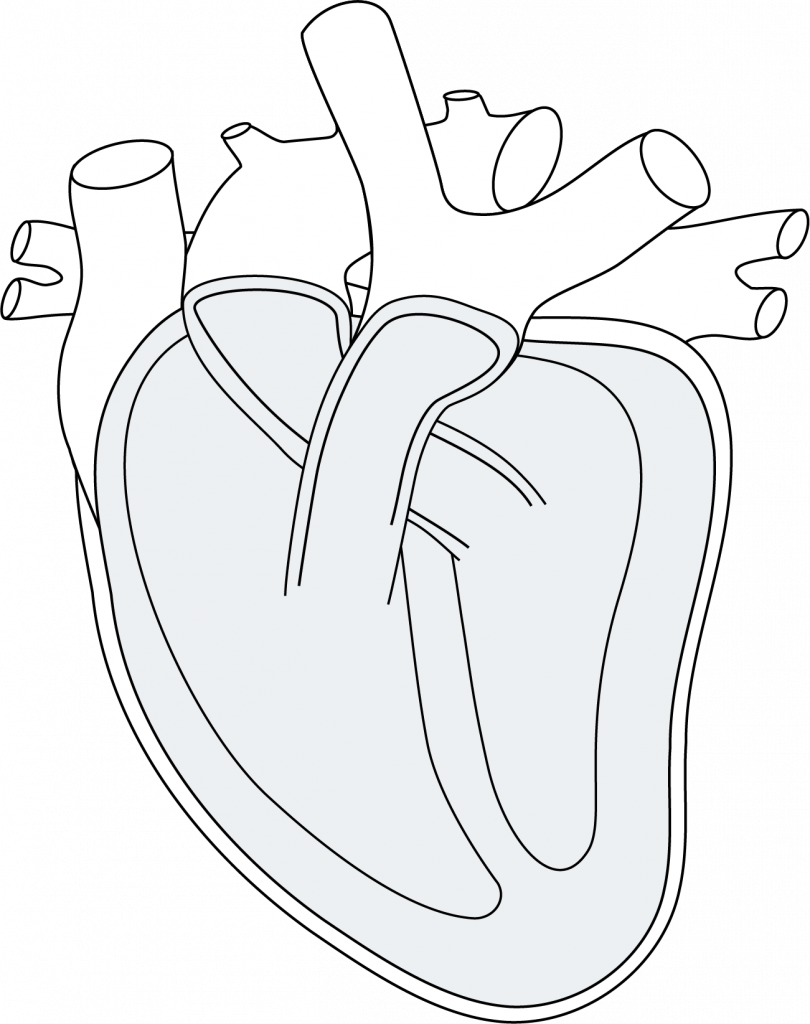Our Focus
We are focused on understanding how inflammation and fibrosis contribute to diseases of the heart and to develop therapies, now in clinical trials for rare cardiac conditions, to target these mechanisms and promote healing.

Pericarditis
Therapeutic areaPericarditis is the most common form of pericardial disease with a prevalence of 160,000 in the United States; following an initial episode, 15 – 30% of patients experience a recurrence.
Pericarditis refers to inflammation of the membrane or sac that surrounds the heart (the pericardium) that is most frequently triggered from a viral infection. Recurrent pericarditis is the most common complication following an initial acute episode of pericarditis, and patients may have multiple recurrences. Symptoms include debilitating chest pain, shortness of breath, and fatigue, resulting in physical limitations, reduced quality of life, emergency department visits, and hospitalizations. Infrequent but life-threatening complications associated with pericarditis include a large accumulation of pericardial fluid, scarring, and constriction of the heart which may limit heart function. The disease is diagnosed in 0.2% of all cardiovascular in-hospital admissions and is responsible for 5% of emergency room admissions for chest pain in North America and Western Europe.
Recurrent pericarditis is the re-appearance of symptoms after a symptom-free period of at least 4 – 6 weeks following an initial acute episode of pericarditis. These recurrences appear in 15% to 30% of acute cases and usually within 18 months. Furthermore, up to 50% of patients with a recurrent episode of pericarditis experience more recurrences. Standard first-line medical therapy consists of non-steroidal anti-inflammatory drugs or aspirin with or without colchicine. Corticosteroids such as prednisone are second-line therapy in patients with continued recurrence and inadequate response to conventional therapy. The only FDA-approved therapy for recurrent pericarditis, launched in 2021, is generally used as a third-line intervention in patients with a third or fourth recurrence.
The number of cases of patients seeking and receiving treatment for recurrent pericarditis annually in the U.S. is estimated at 38,000. Hospitalization due to recurrent pericarditis is often associated with a 5 – 8 day length of stay and cost per stay is estimated to range between $20,000 and $30,000 in the United States.
Read More
Cardiol’s MAVERIC Program in recurrent pericarditis comprises the completed Phase II MAvERIC-Pilot study (NCT05494788) and the ongoing Phase III MAVERIC trial (NCT06708299) designed to definitively assess the impact of CardiolRx™ on preventing recurrent pericarditis in patients at high risk for disease relapse and to support regulatory approval.

Myocarditis
Therapeutic areaAcute myocarditis is a leading cause of sudden cardiac death in people under 35 years of age.
Myocarditis is an acute inflammatory condition of the heart muscle (myocardium) characterized by chest pain, impaired cardiac function, atrial and ventricular arrhythmias, and conduction disturbances. Although the symptoms are often mild, myocarditis remains an important cause of acute and fulminant heart failure and is a leading cause of sudden cardiac death in people under 35 years of age. Although viral infection is the most common cause of myocarditis, the condition can also result from bacterial infection, commonly used drugs and mRNA vaccines, as well as therapies used to treat several common cancers, including chemo-therapeutic agents and immune checkpoint inhibitors.
In a proportion of patients, the inflammation in the heart persists and causes decreased heart function with symptoms and signs of heart failure, and as such treatment is based on standard-of-care recommendations for heart failure. This includes diuretics, ACE inhibitors, angiotensin receptors blockers, beta blockers, and aldosterone inhibitors. For those with a fulminant presentation, intensive care is often required, with the use of inotropic medications (to increase the force of the heart muscle contraction). Severe cases frequently require ventricular assist devices or extracorporeal oxygenation and may necessitate heart transplantation.
There are no FDA-approved therapies for acute myocarditis. Patients hospitalized with the condition experience an average 7-day length of stay and a 4 – 6% risk of in-hospital mortality, with average hospital charge per stay estimated at $110,000 in the United States.
Read More
CardiolRx™ is currently being evaluated in the ARCHER trial, a Phase II multi-national study to evaluate its safety and tolerability as well as its impact on myocardial recovery, in patients presenting with acute myocarditis. ARCHER is fully enrolled and is being conducted at major cardiac centers in the United States, Canada, Brazil, France, and Israel.

Heart Failure
Therapeutic areaHeart failure affects more than 64 million people globally and associated healthcare costs exceed $30 billion annually in the U.S. alone.
Heart failure is a chronic, progressive syndrome in which the heart muscle is unable to pump enough blood to meet the body’s needs for blood and oxygen. People with heart failure suffer from shortness of breath, rapid heart rate, edema, reduced exercise capacity, often struggle with simple daily activities, and are frequently hospitalized. For many, these symptoms significantly reduce their quality of life. Known causes of heart failure include ischemic heart disease and myocardial infarction (heart attack), hypertension, valvular heart disease, inflammatory diseases of the heart such as myocarditis and cardiomyopathies, anti-cancer therapies, and inherited metabolic diseases.
Heart failure remains a leading cause of morbidity and mortality worldwide and persists as a growing health and economic burden. In the United States alone, 6 million people over the age of 20 are living with heart failure, and this number is projected to increase to >8 million by 2030. The total annual cost attributed to heart failure is projected to increase to $69.8 billion by 2030. Recent reporting indicates that in the United States there are 3.3 million physician visits with a primary diagnosis of heart failure annually, and 1.5 million emergency department visits attributable to the syndrome. Total deaths attributed to heart failure annually in the United States have been reported in the range of 86,000 to >300,000, and hospitalizations range from 800,000 to 1.3 million. The 5-year mortality rate for those with heart failure has been reported at 52.6% overall.
Read More
CRD-38 is our novel subcutaneously administered drug formulation intended for use in heart failure. We are undertaking IND-enabling activities to support clinical evaluation of CRD-38 as a therapeutic strategy in heart failure care.

The Inflammasome
 The Target
The TargetInflammasomes are large, intracellular, multiprotein, sensor complexes which under normal conditions are essential to innate immunity and maintaining homeostasis. The NLRP3 (NACHT, leucine-rich repeat, and pyrin domain-containing protein 3) inflammasome is the most extensively studied. Aberrant activation of inflammatory pathways, including the NLRP3 inflammasome, occurs under various conditions such as obesity, hypertension, diabetes, and autoimmunity, or in response to a trigger (e.g., viral infection). This activation contributes to the release of cytokines (IL-1β; IL-6; IL-18) and mechanisms (pyroptosis; endothelial dysfunction) which lead to a cycle of inflammation and fibrotic responses.
These responses are associated with contributing to the pathogenesis and progression of heart diseases including pericarditis, myocarditis, and heart failure. The exact mechanism by which our investigational drugs inhibit inflammation and fibrosis is not fully elucidated; however, our research and that of others suggests that the active pharmaceutical ingredient in CardiolRx™ and CRD-38 attenuates multiple inflammatory signaling pathways, including inhibiting activation of the NLRP3 inflammasome. By targeting inflammatory signaling pathways, our approach has therapeutic potential to heal the heart.